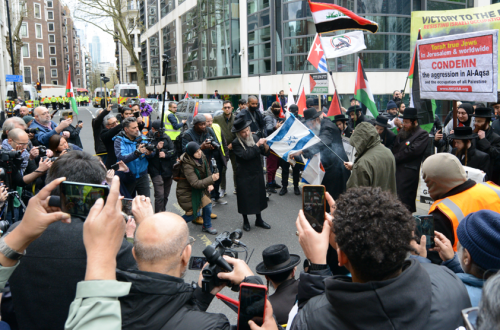 |
|
| New Quilliam report published
Skin-Deep Democracy: How race, religion and ethnicity continue to affect Westminster politics
By Anya Hart Dyke and George Readings
|
|
| Embargoed until 6am on Monday 15th November 2010 | |
|
|
|
| The report is based on 70 in-depth interviews with MPs, parliamentary candidates, councillors and party members. In particular, it found that:
I. Parties seeking ‘bloc votes’ risk damaging integration and representative democracy by encouraging the development of self-appointed ‘community gatekeepers’. Attempts by some politicians to ‘reach out’ to Britain’s diverse population by engaging solely with leading figures within traditional clan-type structures or religious institutions can be divisive and risk creating ‘community gatekeepers’ rather than real engagement with voters. II. Rather than adopting short term tactics such as positive discrimination, parties should try to address underlying cultural issues within their memberships. The report found that, for many of the interviewees, their most negative experiences came from the culture which continues to exist within some local party branches, and therefore that equal opportunities and treatment can only follow lasting cultural change within the parties. III. ‘Typecasting’ and racism remain. Interviewees reported a range of racialised, ‘religionised’ and even racist experiences. For example, one Asian former candidate complained: “I used to be regularly marched out to defend the party against allegations of racism.” Less common, but no less worrying for that fact, were examples of outright racism, like one candidate claiming that another party member had said: “People like you clean toilets in Heathrow.” The report concludes with a large number of recommendations for how the parties can ensure that their actions always serve to promote, not undermine, integration through involvement in Westminster politics and thereby help to protect national cohesion and security. George Readings, a Research Fellow at Quilliam and co-author of Skin-Deep Democracy, says: “Promoting integration through involvement in Westminster politics has an important role to play in challenging extremism within our diverse society. As such, it is vital that the parties do all that they can to ensure that everybody who has the talent and desire to become involved in politics can do so, whatever their background.” “All three parties have done much over the last few years to promote integration through encouraging all British citizens to become involved in Westminster politics. Unfortunately, our report also found a worrying number of examples where dinosaur attitudes held by some individual party members undermined this important goal.” The report’s co-author, George Readings, can be contacted on +44 (0)7590 229 917 The report will be published on Monday 15th November 2010. A full PDF copy of the report is available to download here. An executive summary of the report is available here. |



